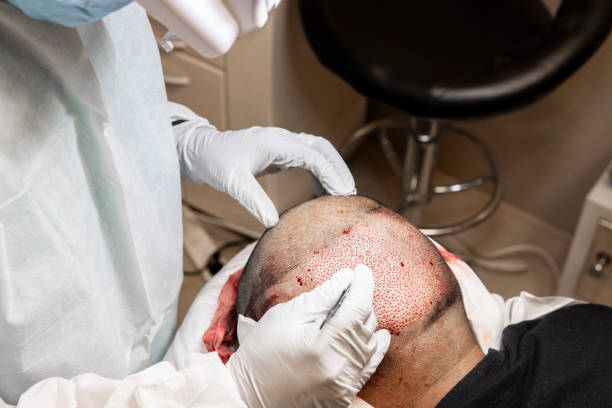Do you find yourself sleeping for long hours and still waking up tired? Or do you feel like you could fall asleep anywhere, anytime, no matter how much rest you get? If this sounds familiar, you might be experiencing something called hypersomnia.
Hypersomnia is more than just feeling tired. It’s a condition where a person experiences excessive sleepiness during the day or sleeps much longer than normal at night, often without feeling refreshed. But is it just poor sleep habits or a lazy lifestyle? Or could it be a sign of something more serious?
In this blog, we’ll break down what hypersomnia is, its causes, and whether it is due to an underlying medical condition that needs attention.
What Is Hypersomnia?
Hypersomnia refers to excessive sleepiness during the day or sleeping too much at night (more than 9–10 hours) without feeling rested. In addition, people with hypersomnia may:
- Struggle to stay awake during work, conversations, or meals.
- Nap frequently during the day but still feels tired.
- Have trouble waking up and feel groggy for hours after sleep (called sleep inertia).
- Sleep long hours at night but do not feel refreshed in the morning.
Types Of Hypersomnia
There are two main types of hypersomnia sleep disorder:
Primary Hypersomnia
In this type of hypersomnia, excessive sleepiness is the main problem (e.g., idiopathic hypersomnia or narcolepsy).
Secondary Hypersomnia
This type of hypersomnia is caused by other medical conditions such as sleep disorders, or lifestyle factors.
So yes, hypersomnia can definitely be a sign of an underlying medical condition, especially when it’s persistent and interferes with daily life.
Medical Conditions Linked To Hypersomnia
Following are some common health conditions where hypersomnia can be a symptom:
1.Sleep Apnea
This is one of the most common causes of secondary hypersomnia. In obstructive sleep apnea (OSA), the airway repeatedly becomes blocked during sleep, causing short pauses in breathing. As a result, the person may not fully wake up, but their sleep is disrupted multiple times at night, causing daytime drowsiness.
Following are the signs of sleep apnea:
- Loud snoring
- Gasping or choking during sleep
- Morning headaches
- Mood changes
-
Depression And Anxiety
Mental health conditions can affect sleep patterns in multiple ways. People with depression may sleep much more than usual but still feel exhausted. Others may experience insomnia, whereas some may experience a mix of both.
In addition, anxiety and chronic stress can also interfere with sleep, leading to a tired and foggy feeling during the day.
-
Narcolepsy
Narcolepsy is a neurological disorder that affects the brain’s ability to regulate sleep-wake cycles. People with narcolepsy often experience the following symptoms:
- Sudden sleep attacks during the day
- Cataplexy (sudden loss of muscle control triggered by emotions)
- Sleep paralysis
- Hallucinations when falling asleep or waking up
Though rare, narcolepsy is a serious condition and usually requires medical treatment.
-
Chronic Fatigue Syndrome (CFS)
People with chronic fatigue syndrome feel extreme fatigue that doesn’t improve with the rest. While not exactly the same as hypersomnia, the two often overlap, as individuals with CFS may sleep a lot but still feel tired and unrefreshed.
-
Hypothyroidism
An underactive thyroid slows down your body’s metabolism, thus leading to fatigue and excessive sleep. Other symptoms might include:
- Weight gain
- Feeling cold
- Dry skin
- Depression
-
Neurological Conditions
Neurological Conditions such as Parkinson’s disease, multiple sclerosis (MS), and head injuries can affect the brain’s ability to regulate sleep, thus leading to hypersomnia.
Other Possible Causes
Besides medical conditions, there are other contributors to hypersomnia too. These conditions may not be diseases but still affect how well you sleep. These are as follows:
- Poor Sleep Hygiene
- Irregular sleep schedule
- Too much screen time before bed
- Sleeping in an uncomfortable environment
- Substance Use
- Alcohol and sedatives can disrupt REM sleep
- Some medications (e.g.; antihistamines, antidepressants, and antipsychotics) can cause drowsiness
- Lifestyle Factors
- Shift work or night shifts
- Jet lag
- Lack of physical activity
When To See A Doctor
It’s normal to feel sleepy sometimes, especially after a late night or during a stressful period. But chronic sleepiness that lasts for weeks or months is not something to ignore.
So, talk to a doctor if you:
- Sleep more than 9 hours and still feel tired.
- Fall asleep during the day at inappropriate times (work, driving).
- Struggle to stay awake even after a good night’s sleep.
- Have other symptoms, such as snoring, depression, or muscle weakness.
How Can Hypersomnia Be Diagnosed?
If you experience excessive sleeping and drowsiness, talk to your doctor. They might suggest you the following:
- A sleep study (polysomnography or home sleep test).
- Blood tests (to check for thyroid issues or vitamin deficiencies).
- A review of your medications (if taking any).
- Clinical referral to a sleep specialist.
How Is Hypersomnia Treated?
Treatment depends on the cause. If hypersomnia is a symptom of another condition, treating that condition usually improves sleepiness.
For Sleep Apnea:
- CPAP therapy is suggested to help keep airways open at night
- Weight loss, surgery, or oral appliances may also help to treat OSA.
For Depression or Anxiety:
- Therapy, lifestyle changes, and medication can improve mood and sleep simultaneously.
For Narcolepsy or Idiopathic Hypersomnia:
- Stimulant medications (like modafinil)
- Scheduled naps
- Good sleep hygiene
Lifestyle Tips To Improve Symptoms:
- Keep a consistent sleep schedule, even on weekends.
- Get exposure to natural sunlight in the morning.
- Avoid caffeine, alcohol, and large meals before bed.
- Exercise regularly (but not right before bed).
- Create a calm, dark sleeping environment.
Final Thoughts
Hypersomnia is more than just being “extra tired.” It can be a real sign that something deeper and serious is going on. It might be a sleep disorder, a mental health issue, or another medical condition.
However, the good news is that many causes of hypersomnia are treatable. The key is to pay attention to your symptoms, understand your sleep patterns, and seek professional help if the problem doesn’t go away.
So, don’t just brush off your sleepiness, your body might be trying to tell you something important. Listen carefully!




